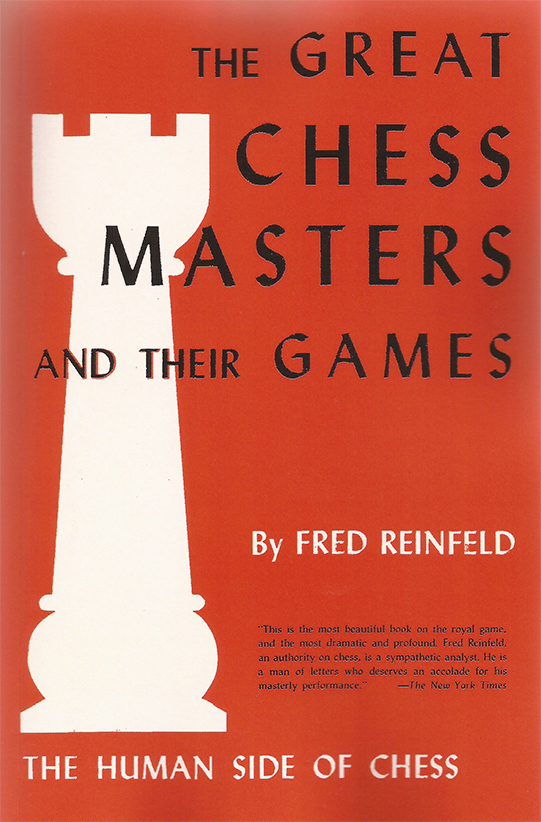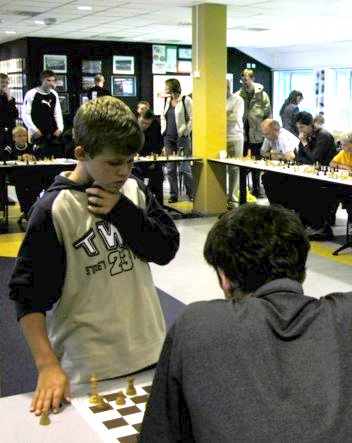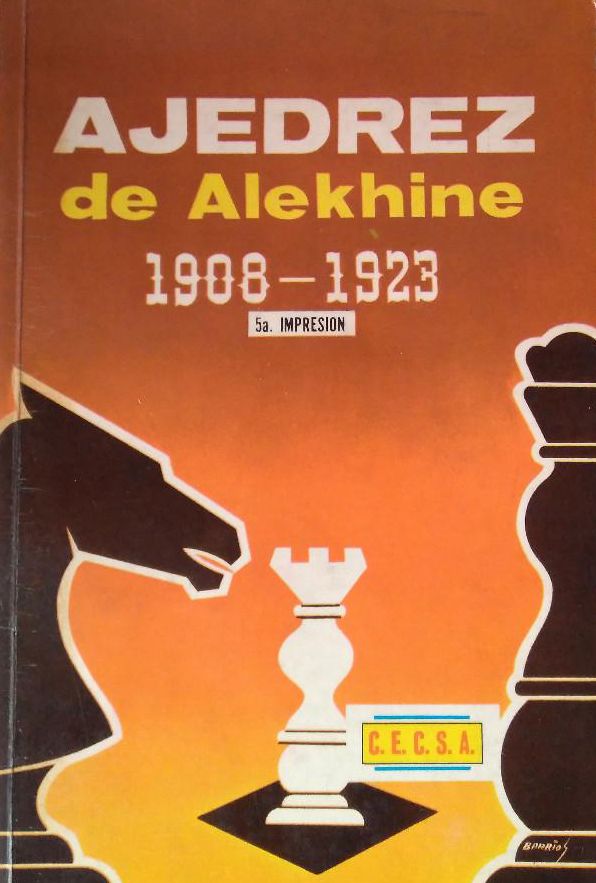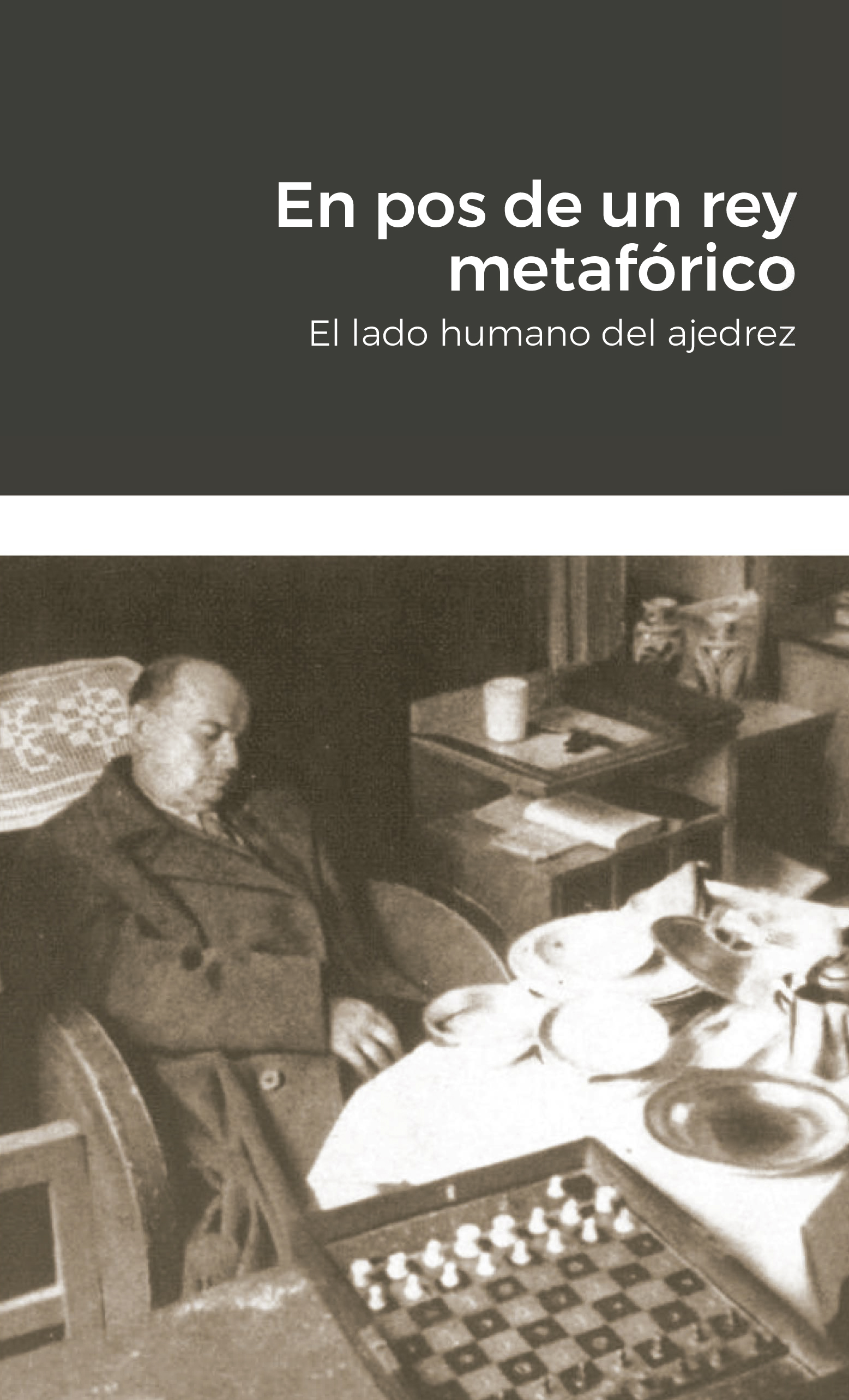Daniel King vs. Karpov
When I was a teenager without a compass to orient myself in a complex field, like many others I suffered from acute bibliomania. I bought more than sixty chess books, many imported, where I spent all the money I had earned on various jobs during the high school and middle school vacations. I mistakenly believed that by reading them my game would improve dramatically. Now I only have a dozen. Capablanca, who unlike many chess players knew how to live life, had more cookbooks than chess books.
Alekhine said: ‘Young players put themselves at serious risk when they blindly imitate the innovations of the masters without first checking all the details and consequences of those innovations’. It’s fun to watch my opponents gear up by following the latest fad in fashion in, say, the Closed Ruy López opening only to be confronted with my plain Bird Defence against the Ruy they hadn’t studied. In a tournament I beat Roberto González since the opening with this so-called inferior defence. After Kramnik won the match against Kasparov thanks to his draws with those endgames that emerge from the Berlin Defences, the hobbyists should wake up to the fact that the previous openings that the GMs had made fashionable don’t mean that we fans should play them. (See the number of pages that in Volume C of the Encyclopedia of Chess Openings, one of the twelve books that I now own, the Closed Ruy López occupies.)
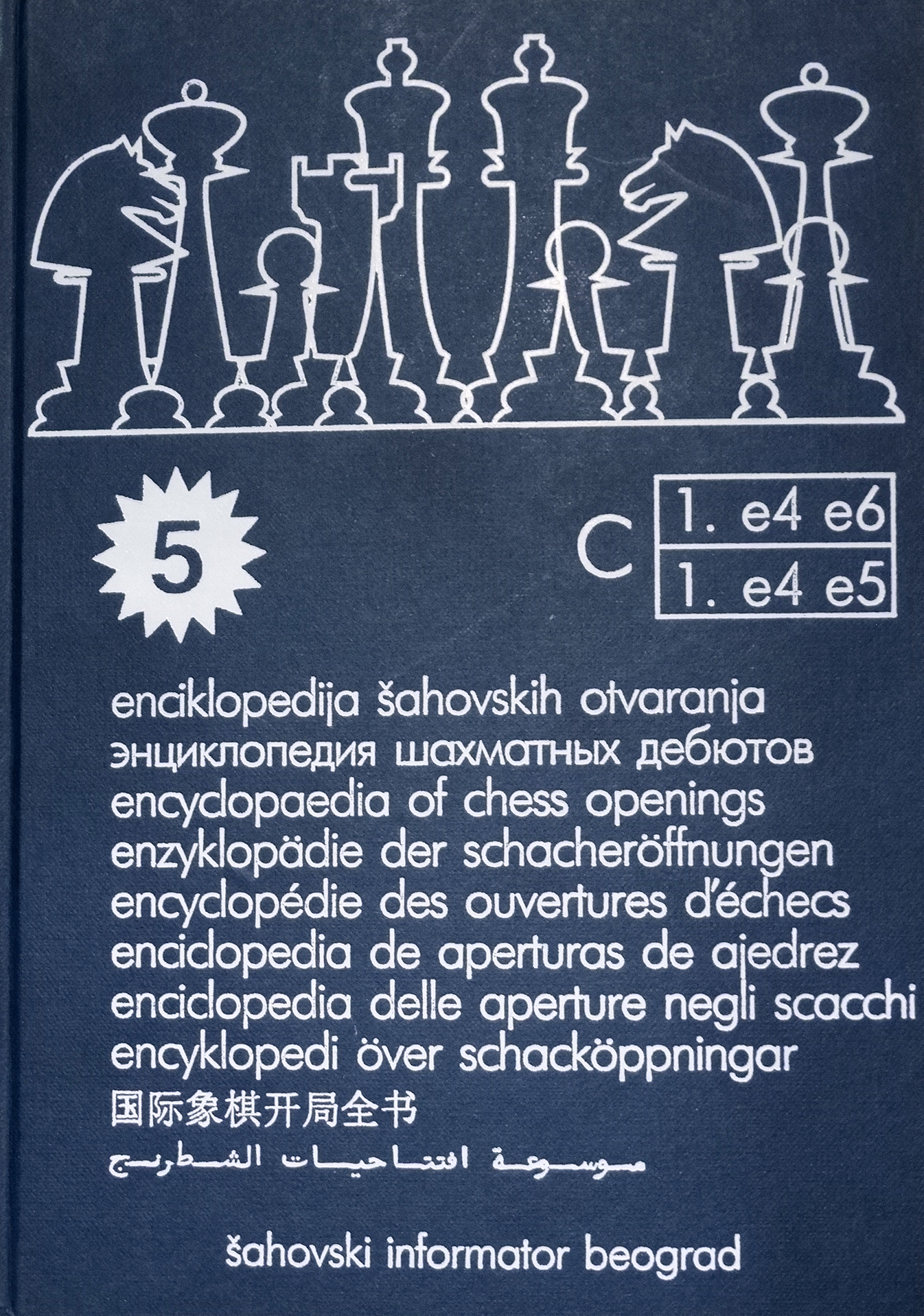 Let us remember how when Bobby Fischer conquered the crown, many beardless people imitated his complicated Najdorf Sicilians in the vain hope of becoming Bobbys, when the sensible thing is to play only those lines that we understand well. Fischer mastered the Najdorf with great virtuosity, but I doubt that many will understand it. (Interestingly, in The Queen’s Gambit, Beth’s first teacher suggests to the girl that she study this complicated defence: something that no good chess teacher would suggest to a child who is new to the game.) The one who explains the Najdorf very well is GM Daniel King on his YouTube channel. I was glad to learn that instructor José Luis Vargas, one of the park’s old friends, used my idea of the twice-postponed exchange variant, Game # 3 of this book—an easy-to-understand variant—for one of his small pupils who scored important victories in tournaments, taking his opponents out of the fashion variants. Lasker, like Alekhine, chides the mania of learning variants without having understood the basic concept of an opening. By contrast, books with flashy marketing titles like Karpov’s The Open Game in Action are anti-didactic.
Let us remember how when Bobby Fischer conquered the crown, many beardless people imitated his complicated Najdorf Sicilians in the vain hope of becoming Bobbys, when the sensible thing is to play only those lines that we understand well. Fischer mastered the Najdorf with great virtuosity, but I doubt that many will understand it. (Interestingly, in The Queen’s Gambit, Beth’s first teacher suggests to the girl that she study this complicated defence: something that no good chess teacher would suggest to a child who is new to the game.) The one who explains the Najdorf very well is GM Daniel King on his YouTube channel. I was glad to learn that instructor José Luis Vargas, one of the park’s old friends, used my idea of the twice-postponed exchange variant, Game # 3 of this book—an easy-to-understand variant—for one of his small pupils who scored important victories in tournaments, taking his opponents out of the fashion variants. Lasker, like Alekhine, chides the mania of learning variants without having understood the basic concept of an opening. By contrast, books with flashy marketing titles like Karpov’s The Open Game in Action are anti-didactic.
I confess that Anatoly Karpov’s career repulsed me and now fascinates me. In chess, before I became aware of the Jewish question, nothing bothered me more that Fischer had not defended his crown in 1975. This is something that disappointed me in such a way that it was enough to turn away from the game and dedicate myself to understanding human psychology. The American could have successfully defended his title in the 1970s, in the middle of the Cold War. What a sight it would have been to have continued with his 2780 rating when Karpov was still in the 2600s! Fischer was at his peak and scrawny Karpov would have been sandwiched between the fearsome Fischer of the 1970s and the new star, Garry Kasparov: who would have been champion in the 80s, or until the 90s if Fischer had not relapsed into his mental illness. That way Anatoli wouldn’t have risen so high on the altar of Caissa nor would he have been champion ten years in a row. At least that’s how I thought before I woke up to what is known on the internet as the JQ (Karpov, in the middle of the slices of bread in the sandwich, is a gentle.)
Although Karpov would achieve the all-time record for most tournaments won, as a pedagogue he is very bad. In the aforementioned book he published a Scotch Opening game that he played with Timann just to show off his victory. And he wrote about another Scotch game to excuse himself why he had lost with that opening in his world championship match. But the long series of variants and subvariants of the games that Karpov gives us has nothing to do with the ABC of that opening. After 1 e4 e5; 2 Nf3 Nc6 3 d4 exd4; 4 Nxd4 Nf6; 5 Cxc6 bxc6; 6 e5 why does the reader think that 6 …Nd5 isn’t played immediately (but 6 …Qe7)? The answer is that after 6 …Nd5 with 7 c4 and 8 Bd3 White would have a strong attack on the kingside. Without being forced to defend himself with 6 …Qe7! in the main variant, after 6 … Nd5? the bishop on d3 is particularly well placed. This d3 bishop is the Scotch’s letter A if Black plays it badly. I only found out about this because a man named Hidalgo, a Spaniard living in Mexico, scolded me in the park when, not knowing the basics of the opening, I played him 6… Nd5? But in his book The Open Game in Action Karpov omits what the now-deceased Hidalgo had told me. The intricate variations of the games that Karpov shows us with other masters of his calibre are the letters U, V and W of the Scotch: not the A. In short: what the champions play doesn’t have to be what we play: players with six hundred points less of rating.
With the exception of Kasparov’s didactic books on his predecessors, instead of reading other world champions I would suggest subscribing to Daniel King’s channel. Regarding defeats, we know that for the chess player they are like a small death. And sometimes only the fear of it crushes us. I will never forget an image from the 1980s when I had Ibrahim Martínez shivering—literally—in front of me in an active tournament, now called rapid chess (a Volga Gambit that I didn’t score and that I lost with Black, although I was much better). I also vividly remember the grimaces of anguish that in another tournament I saw Alberto Campos make in a game against Arturo Anguiano when the latter made an unexpected move. I commented on the terrible grimaces with Erwin Araica who, like every player, didn’t give it the slightest importance and spoke to me in cold logic about the evaluation of the position.
If someone decides to enter the arena, and I mean official tournaments, he must be prepared not only for defeats but for the draws of won games that lacked definition, and the agonies that some of us suffer while extracting a victory from the opponent. Playing in a tournament conjures up an image from the movie Gladiator in which the wrestlers urinated on the floor of the anteroom on their way to the sunny sands of the Colosseum. If that’s what you have decided, ‘Hail Caissa, those who will bet their ego salute you!’, I suggest that after each defeat (or pyrrhic victory) you find comfort in your personal journal. You can also comment on your games in informal texts, where you don’t have to publish the most embarrassing and intimate stuff. And not just like those nice games that I publish in this book: it is more useful to discuss our defeats with humans. I have written a comment on these and gave a copy to Rafael. Perhaps it is worth mentioning that my score in the 1990s in tournaments, including active tournaments in Houston, was 26 wins, 11 draws and 17 losses. The Club Mercenarios gave me a rating of 2176 but what counts is my FIDE rating: 2109. My numerous defeats are available to anyone who asks me (my e-mail appears on page 3).
The goal of these intimate diaries, public commentaries, and lessons in humility is to get to know each other better and avoid dichotomies of the mind: a topic I’ll address in the next chapter.
